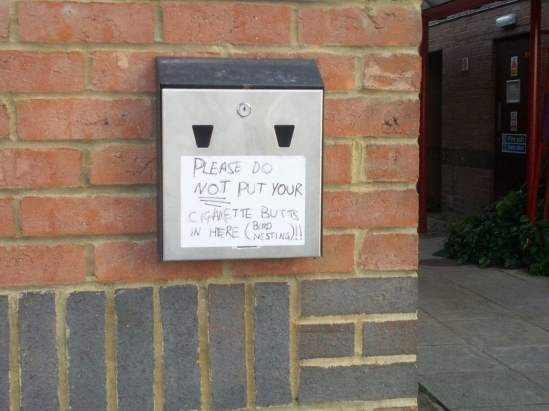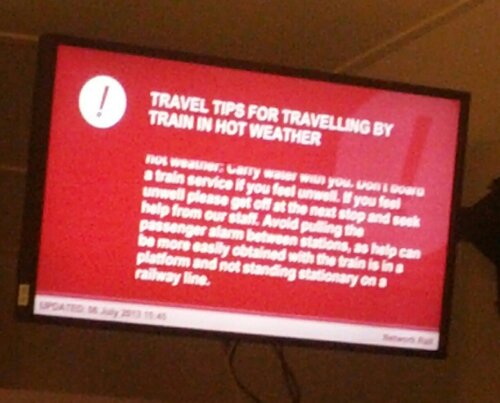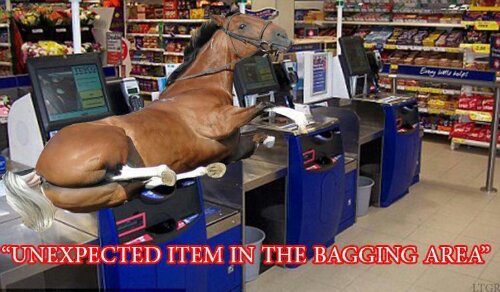The Kent Air Ambulance
I seem to remember many moons ago drawing a parallel between the Kent Air Ambulance and the Kent Police Helicopter, and remarking what a shame it was that the taxpayer was fleeced to pay for a Police helicopter that mostly seems to hover around at night waking small children and anecdotally searching for people growing plants in their lofts with a thermal camera, while the Air Ambulance, a machine that actively saves lives daily was funded by charitable donations.
I’m still none too keen that I am paying for an expensive bauble that (I stress anecdotally) looks for people growing plants, however It has since occurred to me that the Air Ambulance is a marvellous example of important services being provided on a purely voluntary basis without any need for state coercion. I’m surprised they allow it to continue to be honest.
From the Charities Commission website:
Not quite ‘funded entirely from charitable donations’ I’ll admit, but that huge whack of ‘Trading To Raise Funds’ presumably includes voluntarily staffed charity shops selling voluntarily donated goods, as well as whatever else they can get people to part with their cash for to buy whatever it is they sell. It’s a cool flying emergency vehicle so I suppose the possibilities are endless.
It’s a big, shining example to stick in the face of whoever gainsays the anarchist or libertarian viewpoint with fears that civil society is unable to provide certain things, and that a state of some description is a necessary evil- even in the modern world where civil society is massively stunted by public health, pensions, unemployment benefits and ‘charitable’ organisations it is still possible for a massively expensive and vital emergency service to be funded on a purely voluntary basis. One wonders what else could be achieved in a world where civil society was set free to do good things?
A few weeks to encrypt and…
And what? And shouldn’t that be decrypt?
In “vein”?!
Argh!
Maybe the NSA should offer autocorrect with their spyware …
Too Much Month And Not Enough Market
This was nearly called “In Which I Defend Payday Lenders,” but that isn’t going to be the main thrust of it.
There’s been a lot of talk recently about payday lending and 6000% APRs’ and loan sharking, and who’s fault it is, and what’s to be done about it, and all the rest. Even in free market anarchist and libertarian circles they seem to be seen as a pretty bad thing, and in wider circles Earl may as well be riding a Pale Horse.
So, that 6000%APR. Well, it isn’t really, is it? Now, I’m admitting here that the only payday lender I’ve had business with is Wonga.com, but their 6000%APR isn’t, its a 6000% equivalent APR. They actually charge a fixed sum for the loan. Remember, these are payday loans, not mortgages. They lend you a sum, and charge you a fee for doing so, the representation of the fee as interest on the loan isn’t entirely fair (although presumably if you default then you’re screwed). You borrow a fixed sum and then pay it back (plus fee) in one go, no installments, no compound interest, no “annual.”
So… are they a bad thing? Maybe. Or, perhaps, the circumstances that lead to them existing are a bad thing. In a way.
You see, what Earl and his buddies are, actually are, at the end of the day, is a Market response to a gap. There is a demand for short-term unsecured loans and entrepreneurs have started to satisfy that demand in order to make a profit. Loanees value £100 today over £110 next week, and loaners prefer it the other way around. Both parties gain from the transaction and everybody wins. Loaners compete for business, keeping fees low and service good, and loanees choose who they prefer to deal with.
So where is the bad side? Well, obviously free adults can get themselves in a mess with payday lenders, just as they can with more traditional bank loans, credit cards, opiates, bingo, fixed-odds betting machines and any number of other things that most people are perfectly able to use wisely and some minority can’t handle. That isn’t really a bad side. The bad side is really the circumstances that lead to the niche in the market existing in the first place. That gap isn’t occurring (although the Market’s response to it is, much like the human body’s immune response to a foreign object) it’s caused by distortions.
“Too much month and not enough money” is the marketing slogan, and it is true enough, we’ve all experienced that feeling. Wages, especially at the lower end of the scale do not cover living expenses plus ‘some for a rainy day’ and so when the rainy day comes, you’re basically buggered. Car breaks down, cat gets sick, whatever- living hand to mouth doesn’t leave any room for unpredictable expensive emergencies and that’s where the payday loan comes in.
No, I haven’t joined the Left! This isn’t turning into a diatribe against Greedy Businessmen Screwing The Poor Out Of A Fair Living Wage. That’s a nonsense. To take that argument to its logical conclusion, the infamous Greedy Businessman would soon run out of A) employees and B) customers, as his employees starved to death and his fellow Greedy Businessmen’s employees stopped buying his produce due to being dead of starvation themselves- not generally seen as a state conducive to a bit of shopping.
Labour is a market too, that’s why we refer to it as a ‘labour market,’ and left to themselves businesses and workers would come to an equilibrium whereby wages and prices allowed even the lowest paid enough money to live on (although not luxuriously). Without artificial distortions this is the only way it can happen, as any other methods would be unsustainable. If one business cuts its wages relative others it will find it hard to recruit -or at least to recruit a competent workforce- and if one business raises its prices relative to others then it will find it hard to sell its products.
So what’s all this to do with payday lending? Well, unfortunately we don’t have a free market in labour or prices, what we have is a market filled with distortion piled on distortion. Benefit payments to the so-called ‘working poor’ coupled with high unemployment rates allow businesses to get away with paying lower wages than they otherwise would. Inflation makes prices rise y.o.y. when naturally they would fall, making it A) harder for people to make ends meet and B) easier for businesses to cut wages without workers noticing. Historically high taxes leech ever more of people’s wages. Zombie businesses stalk the land, attracting malinvestment and dependent on government bailout rather than being allowed to fail. Monopolies, duopolies and barriers to entry reduce competition and so on. So, we have a highly distorted market in which a large number of people find themselves worse off each year than the year before, possibly without even realising that they are, in fact, worse off (because their pay cut comes in the form of a below-inflation pay rise) and subsequently (and eventually) find their savings depleted (or in the young not started at all) and cannot dip into them when required. Clearly, people still need money for emergencies and unexpected outlays, and that’s where payday lenders come in. Their existence is almost inevitable, and to do away with them will not solve the problem, it will merely heap another distortion onto the market. The need will still exist, it will just be served in some other fashion.
Maybe even by the loan sharks on the black market that Earl and his buddies get lumped in with.
Zimmerman Acquitted
Zimmerman was acquitted on all counts of the murder and/or manslaughter of Trayvon Martin yesterday. I don't want to dwell on the rights and wrongs of the decision, as nobody really knows what went down that night apart from those involved and it appears that the jury made the correct decision based on what the laws of that state say. Certainly, the arguments have been done to death in the media. In fact, the case barely made me want to come out of blogging semi-retirement until I read this:
Still, there was anger over the verdict. “We are outraged and heartbroken over today’s verdict,” said Benjamin Todd Jealous, president of the N.A.A.C.P. “We stand with Trayvon’s family and we are called to act. We will pursue civil rights charges with the Department of Justice, we will continue to fight for the removal of Stand Your Ground laws in every state, and we will not rest until racial profiling in all its forms is outlawed.”
I don’t really see the reasoning. Well, I do, but I don’t see the on the face of it reasoning. I get why the NAACP would have an issue with racial profiling (it’s kinda their bread and butter) but Stand Your Ground laws? I don’t really see how conflating the two works, logically I mean. Unless… the NAACP imagine that black Americans are more likely to come off worse than other Americans because they are more likely to be robbing people or something, but they can’t be saying that, can they?
The only other thing I can think of is that the NAACP are blindly joining in with the others using this case to further gun control and victim disarmament measures, without considering the negative consequences for their own constituency.
How Far We’ve Come
My God. How far we’ve come.
To think, in the past, people had to be expected to know themselves how to cope in hot weather!
Thank Providence that we have modern technology to save us, so all those thousands don’t drop dead on the train because they didn’t realise they had to drink to survive any more.
How humanity has avoided extincition until now eludes me, but now our survival as a species is assured.
Rejoice!
Official: Your Life Worth Less
Today, interior minister May announced that anyone convicted of killing one of the state’s paramilitaries will get an automatic life sentence.
But only those killing agents of the state. If the cattle get killed, then the same derisory sentences apply. That’s you, me or your dear old mum. A stark illustration of the contempt these people hold us in, and they care so little that they just say it out loud.
Some people will probably even applaud the announcement. Why isn’t there an outcry?!
Workplace schemes “in chaos”
http://www.independent.co.uk/news/uk/home-news/poundland-ruling-backtowork-schemes-in-disarray-as-nopay-placements-judged-unlawful-8491398.html I must admit that I’m on two minds about this scheme. On the one hand, as a taxpayer I’m in favour of the people I am funding the so-called safety-net for actually, you know, looking for work as opposed to the Jeremy Kyle And Special Brew option. In fact, I’m not even entirely opposed to those reticent safety-netees being forced to look for work, or forced to attend workplace schemes to make them more attractive to employers I’m also well aware that these schemes, well managed, can do a lot of good. The corner of Big Retail that I inhabit has had a constant supply of them since they started ruinning the scheme and quite a few have been given permanent jobs as a result, In fact, at our branch it has become almost a de facto recruitment process, allowing the store to take on people we’ve seen in action rather than who can bullshit best in an interview and giving employment opportunities to those who may, you know, be quite good at working in a shop, but not terribly good at bullshitting their way through interviews. On the other hand, It’s corporatism pure and simple isn’t it. I haven’t heard of much work-placement free labour being sent to sole traders and corner shops, the captive forced labour pool (and it IS forced labour, no matter what they claim) is at the disposal of Big Retail, Big Distribution and Big Whatever Else. It’s another government subsidy for big business.
Scary
(Wired.)
The Scottish city of Glasgow has won a £24 million grant from the UK’s Technology Strategy Board (TSB) to become Britain’s first “smart city”.
The money will be spent by the council on services for residents that will make the quality of living in the city better. Glasgow beat 30 other UK cities to the prize.
Projects on the table include real-time traffic information, apps to check when buses and trains are arriving, and a pothole reporting service. Facial analysis for the city’s CCTV network and energy use monitoring to make electricity and gas delivery more efficient are also mooted.
“Glasgow has some quite extreme challenges – it has the lowest life expectancy of any city in the UK for instance – and the hope is that if we bring together energy, transport, public safety and health it will make it more efficient and a better place to live,” Scott Cain, the TSB’s project leader for Future Cities, told the BBC.
Spot the scary part?
Facial analysis for the city’s CCTV network and energy use monitoring to make electricity and gas delivery more efficient are also mooted.
Jesus.






